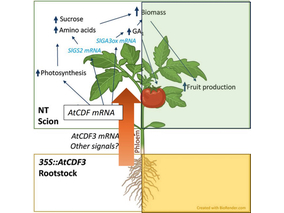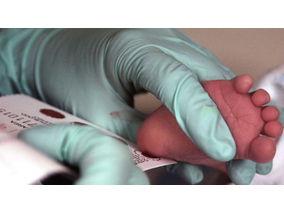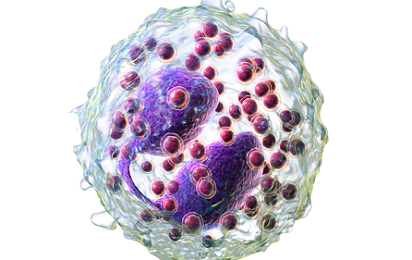Researchers of the Oncology Molecular group from CIBBIM- Nanomedicine at Vall d’Hebron Institute of Research (VHIR) have discovered that the loss of a gene, called RHOA, enhances tumor progression and metastasis in colon and rectal cancer. The study also reveals the mechanism of action of this gene, whose role is completely different in other types of cancer. The results have been published inNature Communications.
The main author of the study, Dr. Diego Arango, has studied the role of RHOA since 2005, when he discovered with another international research group that it was one of the genes that presented more differences in its expression between patients with good and poor prognosis.
Based on this first study, the aim of the research that now has been published, was to determinate whether the loss of RHOA levels is the cause (or one of the causes) of the poor prognosis of the patients. In order to prove it, researchers inactivated RHOA in the gut of mice that had started the tumorogenesis, which is the process by which cancer is produced. “We discovered that the animals died earlier and had more and bigger tumors”, explained Dr. Arango, head of the Oncology Molecular group, and researcher of the CIBER of Bioengineer, Biomaterials and Nanomedicine.
To confirm the results, they also developed in vitro techniques, which proved that the loss of RHOA is associated to major tumor proliferation and cellular differentiation.
After discovering RHOA’s function in colorectal cancer tumors, VHIR’s team sought to determine if the gene’s absence also had a similar effect in metastasis. Using a murine study, the researchers detected that RHOA’s inactivation made colon cancer cells more metastatic. According to the researcher, that explains why “in the metastasis samples from patients with colorectal cancer we have found less RHOA expression than in the primary tumors”.

The research team observed changes in head circumf...

AtCDF3 gene induced greater production of sugars a...

Un estudio con datos de los últimos 35 años, ind...

En nuestro post hablamos sobre este interesante tipo de célula del...

La revista ‘Nature Protocols’ selecciona esta técnica como “pro...
Biotechnology portal in Spain
Subscribe to our newsletter and stay up to date with the latest news and deals!
2013 © Biotech-Spain.com - Site Developments SL. All Rights Reserved. Terms of Service | Privacy Policy
Articles
Directory
